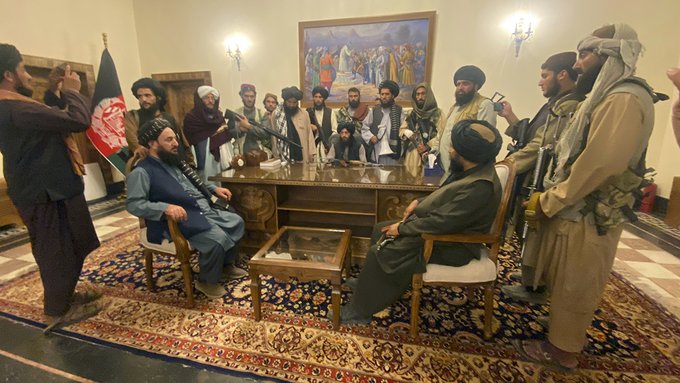
R Krishna Das
The tribal leaders, especially the village elders played a crucial role to facilitate Taliban fighters to capture Afghanistan with state-run military putting no resistance.
The exercise by the Taliban leaders started in 2020 soon after the Doha, Qatar agreement between the militant group and the United States to ensure the latter’s complete withdrawal from Afghanistan. The Taliban however capitalized on the uncertainty caused by the February 2020 agreement. A section of Afghan government forces realized they would soon no longer be able to rely on American air power and other crucial battlefield support.
This was the turning point as the forces grew receptive to the Taliban’s approaches that initially started from the rural villages. The government military’s spectacular collapse despite 20 years of training and equipped with heavy weapons with American aid began with a series of deals brokered in the villages between the militant group and some of the Afghan government’s lowest-ranking officials. The tribal leaders and the village elders facilitated the parleys.
Under the deals, the Taliban leaders offered money in exchange for government forces to hand over their weapons. With the initial success, the meetings advanced to the district level and then rapidly on to provincial capitals, culminating in a stunning series of negotiated surrenders by government forces that finally paved the way for Taliban to capture Kabul and power in Afghanistan on Sunday.
The first batch of government forces reached an agreement with the Taliban for money. But others saw the return of militants to power in Afghanistan after the American forces retreated and wanted to secure their place on the winning side. The negotiated surrender to the Taliban slowly gained pace in the months following the Doha deal, according to American experts in foreign affairs. The capitulations began to snowball soon after President Biden announced in April that US forces would withdraw from Afghanistan by August end without conditions.
Kunduz, the first key city overrun by the militants, was captured a week ago after days of negotiations mediated by tribal elders that resulted in a surrender deal to hand over the last government-controlled base to the Taliban. Similarly, negotiations in the western province of Herat resulted in the resignation of the governor, top Interior Ministry and intelligence officials and hundreds of troops. The deal was concluded in a single night.
“Don’t fire a single shot,” a unit commander of the Afghan special forces officer stationed in Kandahar told his soldiers guarding the critical border crossing. The soldiers wanted to combat fearing the militants would eliminate them. But the senior officers had given a clear instruction.
The soldiers were left with no option; they put down their weapons, changed into civilian clothing and fled the post.



